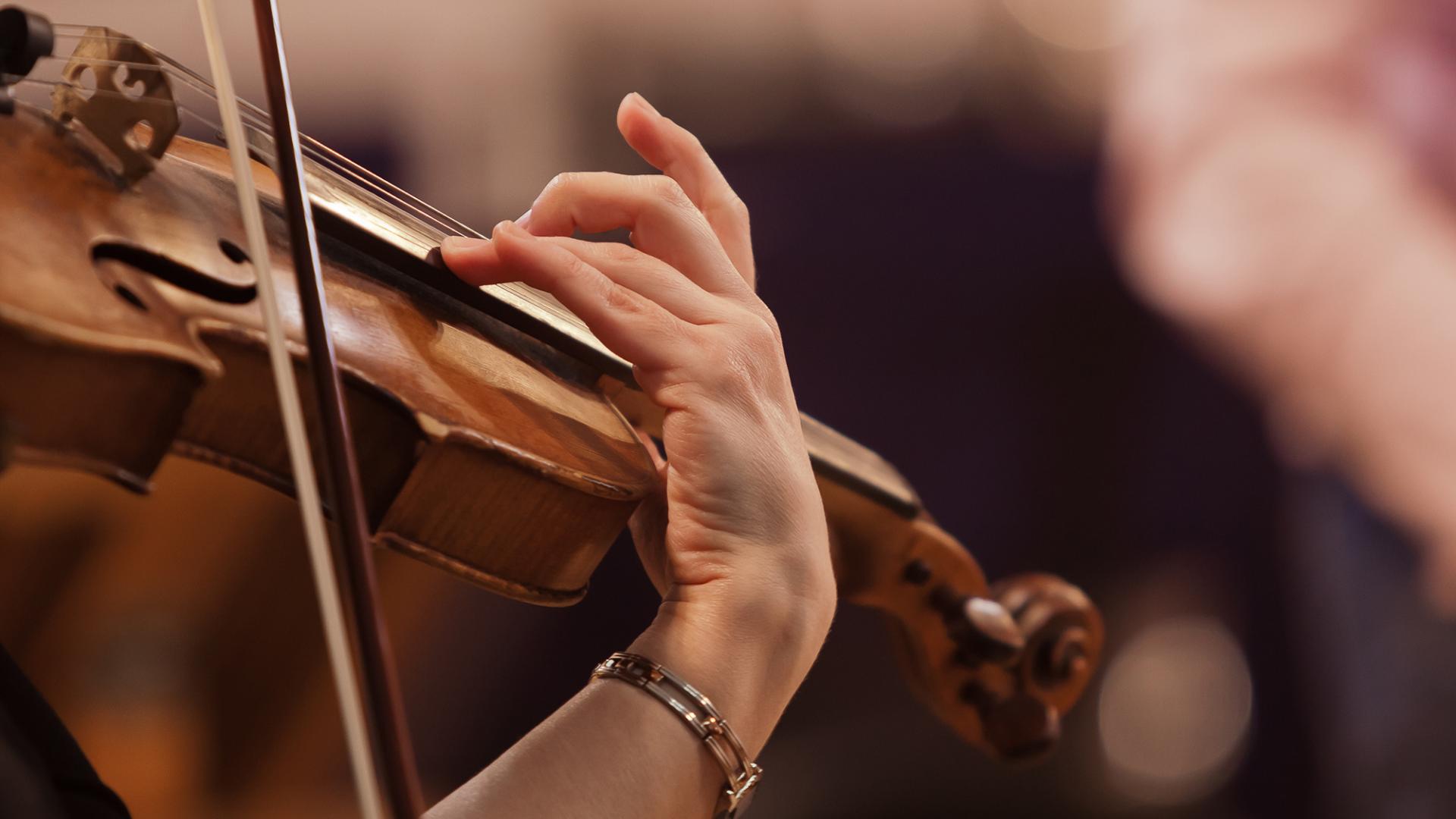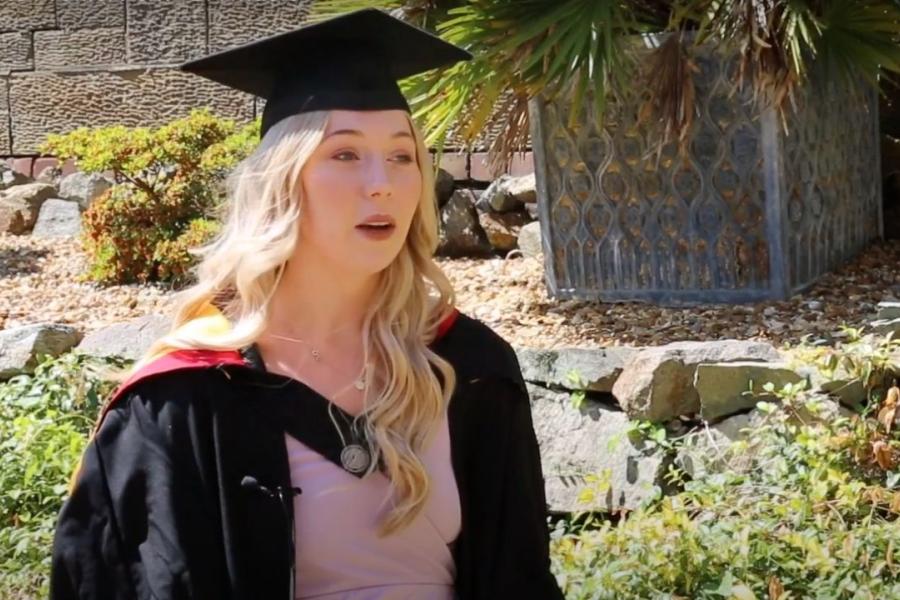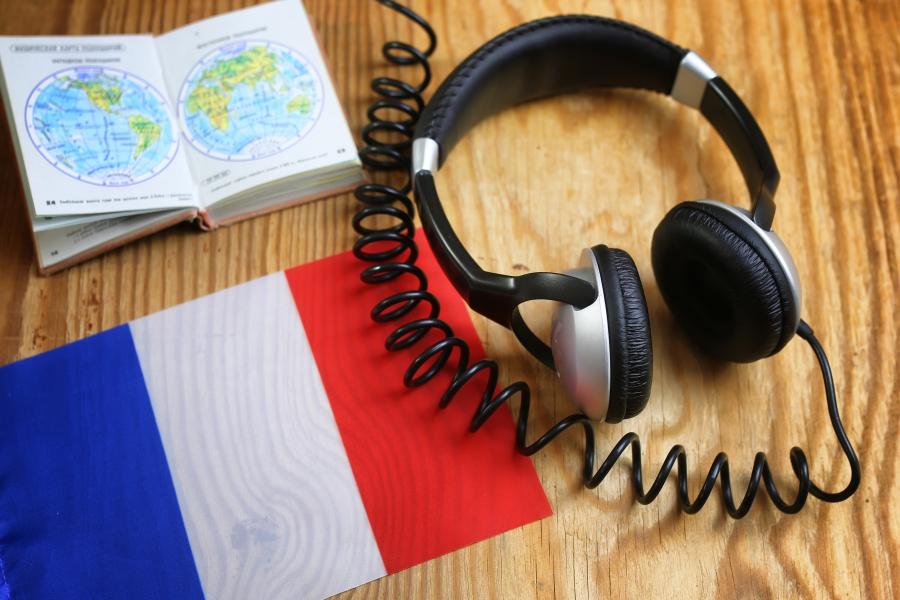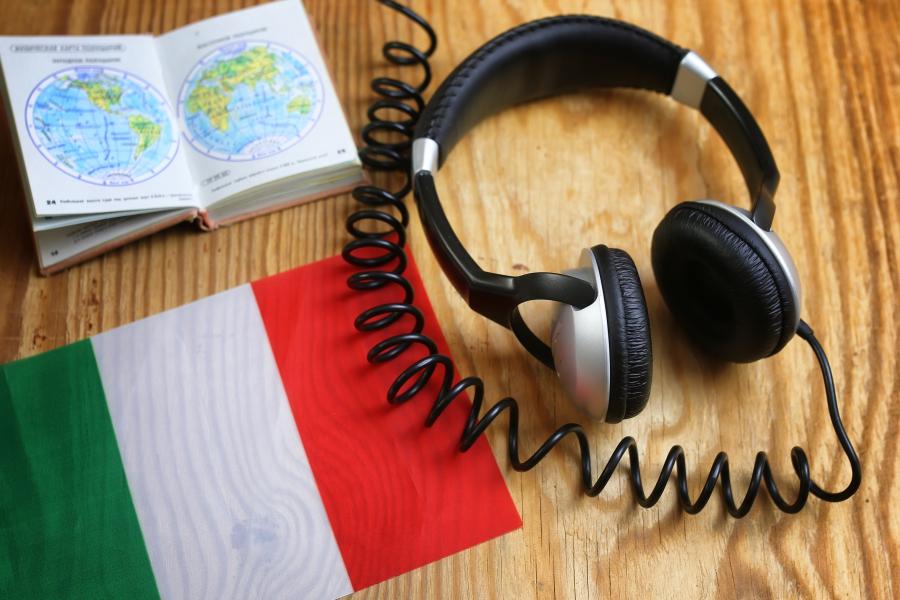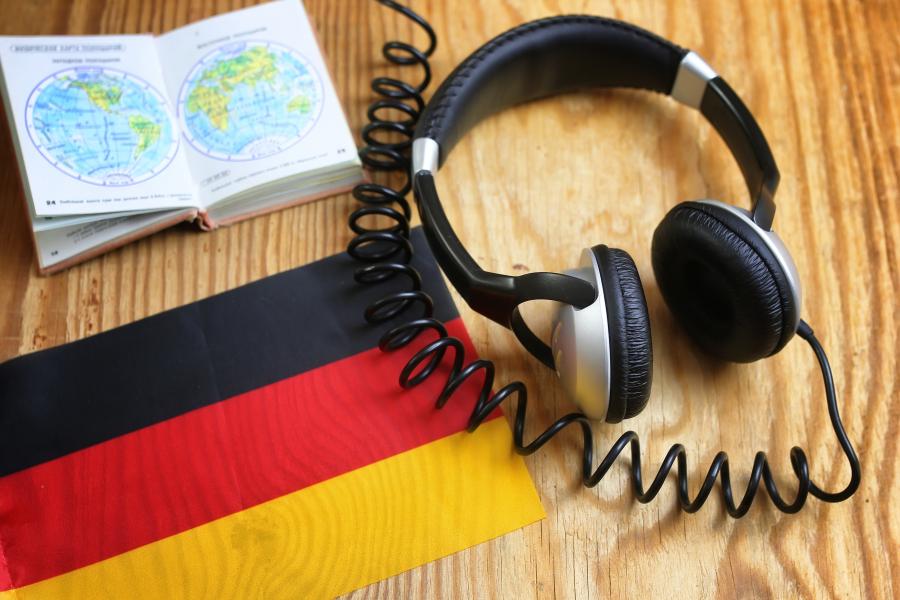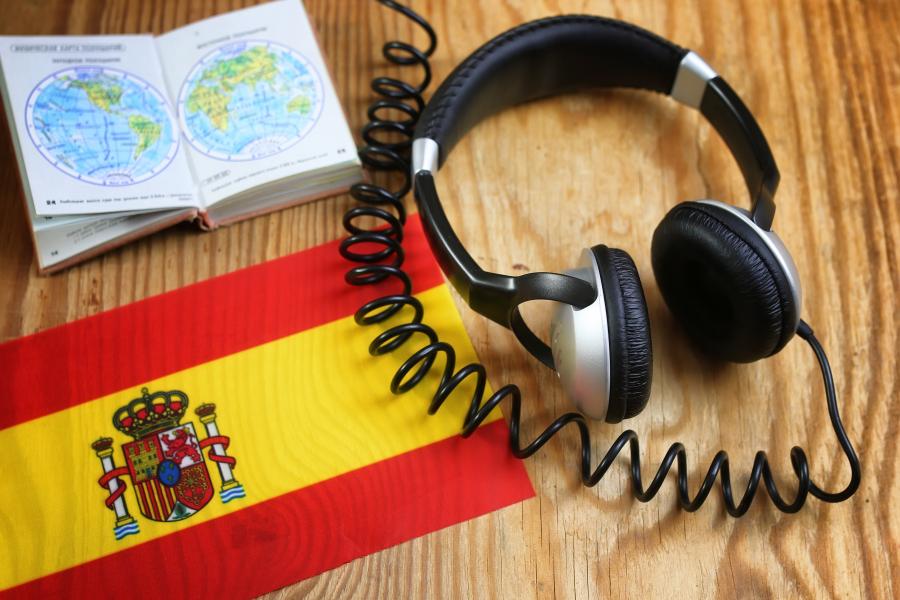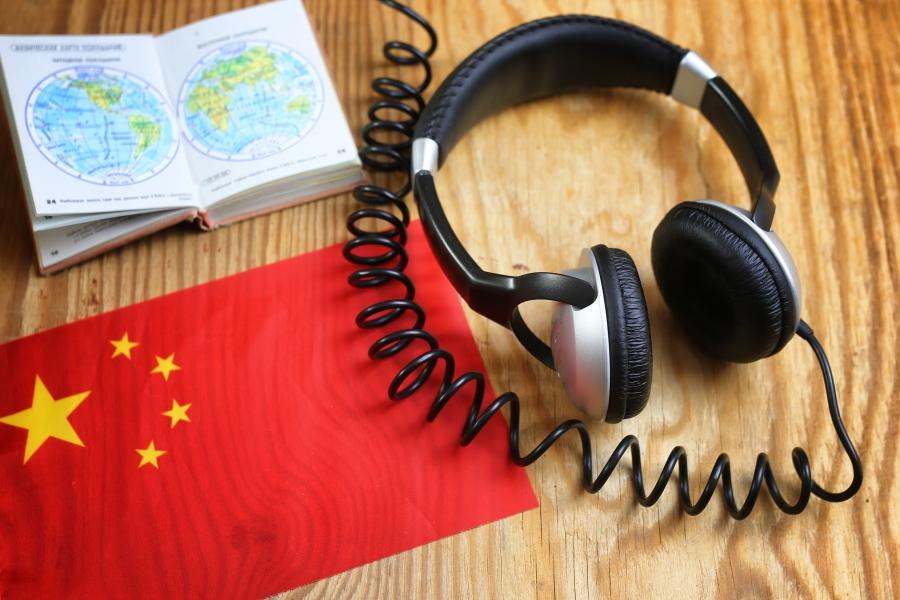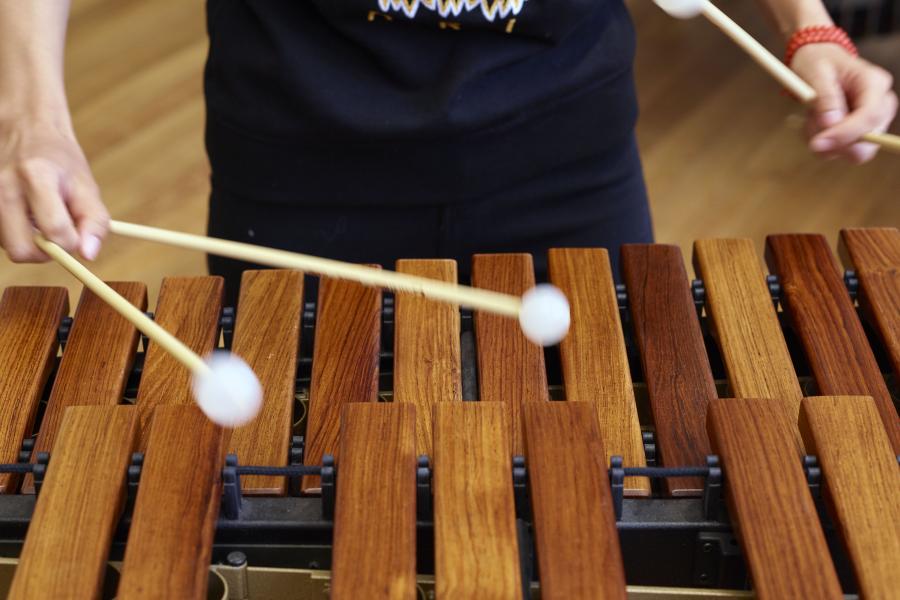About This Course
There are profound connections between language, literature, art and culture, and the combination of Music and Modern Languages allows you to study these in depth. You will use and develop your language and musical skills in an integrated way, using each to inform and enrich the other. Choose from Chinese, French, German, Italian or Spanish at beginners or advanced level. You will develop written (e.g. translation) and oral skills and will learn about cultural aspects related to the chosen language, in which you will be fully immersed during your year abroad.
There are profound connections between language, literature, art and culture. The combination of Music and Modern Languages allows you to study these in depth.
You will use and develop your language and musical skills in an integrated way, using each to inform and enrich the other. You will study Music together with your chosen language, developing advanced language skills and a broad range of insights into the culture, society and history that go with it. Choose from Chinese, French, German, Italian or Spanish at beginners or advanced level. You will develop written (e.g. translation) and oral skills and will learn about cultural aspects related to the chosen language, in which you will be fully immersed during your year abroad. As a musician, you will have the opportunity to grow in knowledge, skills and creativity, guided by world-renowned composers, performers, musicologists and researchers. You will perform in, or attend performances at, public venues like Pontio or the magnificent Prichard Jones Hall. You will also enjoy unrivalled facilities in our arts and innovation centre, Pontio, which regularly attracts world-class theatre productions and musical events.
The course has music and language at the heart of it, with core language modules developing your key oral, aural and written skills in each year. These modules also foster cultural awareness, which you will need for your year abroad, and later on, for the world of work. Your musical experience will extend beyond the lecture room, with opportunities to join the University Symphony Orchestra, Chamber Choir or one of the many student societies for Music, such as Opera, Concert Band, DJ, Musical Theatre, and String Orchestra. You will also benefit from Bangor’s excellent links with leading organisations in the UK, including the BBC National Orchestra of Wales, with whom we have an annual composition workshop.
Why choose Bangor University for this course?
- Flexible degree structure to tailor the course to your interests and strengths.
- A dynamic music-making community: choirs, orchestras, bands, student ensembles and more.
Additional Course Options
This course is available with a Placement Year option where you will study for 1 additional year. The Placement Year is undertaken at the end of the second year and students are away for the whole of the academic year.
The Placement Year provides you with a fantastic opportunity to broaden your horizons and develop valuable skills and contacts through working with a self-sourced organisation relevant to your degree subject. The minimum period in placement (at one or more locations) is seven calendar months; more usually you would spend 10-12 months with a placement provider. You would normally start sometime in the period June to September of your second year and finish between June and September the following year. Placements can be UK-based or overseas and you will work with staff to plan and finalise the placement arrangements.
You will be expected to find and arrange a suitable placement to complement your degree and will be fully supported throughout by a dedicated member of staff at your academic School and the University’s Careers and Employability Services.
You will have the opportunity to fully consider this option when you have started your course at Bangor and can make an application for a transfer onto this pathway at the appropriate time. Read more about the work experience opportunities that may be available to you or, if you have any questions, please get in touch.
This course is available with an International Experience Year option where you will study or work abroad for 1 additional year. You will have ‘with International Experience’ added to your degree title on graduating.
Studying abroad is a great opportunity to see a different way of life, learn about new cultures and broaden your horizons. With international experience of this kind, you’ll really improve your career prospects. There are a wide variety of destinations and partner universities to choose from. If you plan to study in a country where English is not spoken natively, there may be language courses available for you at Bangor and in your host university to improve your language skills.
You will have the opportunity to fully consider this option at any time during your degree at Bangor and make your application. If you have any questions in the meantime, please get in touch.
Read more about the International Experience Year programme and see the studying or working abroad options on the Student Exchanges section of our website.
Course Content
Your Music and Modern Languages degree programme at Bangor is flexible: you will shape your degree course to reflect your interests and strengths. Our courses are taught by world-renowned staff committed to helping you develop your subject-specific knowledge, whilst giving you the freedom to discover and explore your own interests. Tuition is mainly in small group seminars and workshops, and there are few formal lectures. You will also spend time on background reading, listening to music, completing essays and coursework as well as rehearsing and performing in ensembles, choirs and orchestras. Several modules involve visits to theatres, concerts, recording studios and composition workshops.
You will begin your Music studies in a genuinely all-embracing way, engaging with musical theory and practice from modal polyphony to electroacoustic composition. You will use this broad framework as a launch pad for developing your own expertise in one of several fields of musicology, performance or composition, including 20th-century music, classical performance, editing, music in health and well-being, and all styles of composition. You have the option of choosing Solo Performance, taught through an innovative combination of individual tuition, workshops and masterclasses.
Your Modern Language studies will consist 3-4 hours of language classes each week plus classes in your other chosen modules. Assessment involves coursework and written and oral examinations. You will also complete a dissertation as part of your degree. All of our 4-year language degrees include a year abroad. You will spend your third year working or studying abroad before returning to Bangor for your final year. This experience provides a fantastic opportunity to develop your language skills further whilst immersing yourself in the life and culture of your host country.
Modules for the current academic year
Module listings are for guide purposes only and are subject to change. Find out what our students are currently studying on the Music and Modern Languages BA (Hons) Modules page.
Course content is for guidance purposes only and may be subject to change.
Facilities
Modern Languages facilities
- Language Centre where you can work on your language skills.
- Language-specific resource rooms where you can access materials to boost your language skills and cultural knowledge.
- Modern Languages DVD library featuring several hundred foreign language films that you can borrow for free.
- Dedicated study spaces.
- Film library.
- Dedicated Year Abroad support.
Music facilities
- Two dedicated Music buildings.
- Two professional standard concert halls.
- Rehearsal spaces.
- Practice-room suites with 24-hour access.
- Instruments including a full-size organ, chamber organ, harpsichords and grand pianos.
- Four state-of-the-art electroacoustic composition and recording studios, with 24-hour access.
- Access to performance and rehearsal spaces in the magnificent Pontio Arts Centre.
General University Facilities
Library and Archive Services
Our four libraries provide a range of attractive study environments including collaborative work areas, meeting rooms and silent study spaces.
We have an extensive collection of books and journals and many of the journals are available online in full-text format.
We house one of the largest university-based archives not only in Wales, but also the UK. Allied to the Archives is the Special Collections of rare printed books.
Learning Resources
There is a range of learning resources available, supported by experienced staff, to help you in your studies.
The University’s IT Services provides computing, media and reprographics facilities and services including:
- Over 1,150 computers for students, with some PC rooms open 24 hours a day
- Blackboard, a commercial Virtual Learning Environment, that makes learning materials available on-line.
Course Costs
General University Costs
Home (UK) students
- The cost of a full-time undergraduate course is £9,000 per year (2021/22 entry and 2022/23 entry).
- The fee for all placement, international, and sandwich years is £1,350 (2021/22 and 2022/23).
- More information on fees and finance for Home (UK) students.
International (including EU) students
Additional Costs
There are also some common additional costs that are likely to arise for students on all courses, for example:
- If you choose to study abroad or take the International Experience Year as part of your course.
- If you attend your Graduation Ceremony, there will be a cost for gown hire (£25-£75) and cost for additional guest tickets (c.£12 each).
Course-specific additional costs
Depending on the course you are studying, there may be additional course-specific costs that you will be required to meet. These fall into three categories:
- Mandatory Costs: these are related to a particular core or compulsory module that you’ll be required to complete to achieve your qualification e.g. compulsory field trips, uniforms for students on placement, DBS Check.
- Necessarily Incurred Costs: these may not be experienced by all students, and will vary depending on the course e.g. professional body membership, travel to placements, specialist software, personal safety equipment.
- Optional Costs: these depend on your choice of modules or activity and they are shown to give you an indication of the optional costs that may arise to make sure your choice is as informed as possible. These can include graduation events for your course, optional field trips, Welcome Week trips.
Entry Requirements
For all Music courses the ability to read staff notation is required. Points from grade examinations are taken into consideration where appropriate, but are not normally included in the offer.
For all Modern Languages courses: Relevant modern language preferred. Our courses are designed to cater for those who have studied one or more languages as well as offering pathways for those beginning a language from scratch - there is no modern language language requirement for the beginner's language route.
Offers are tariff based, 96 - 128 tariff points from a Level 3 qualification* e.g.:
- A Levels: including grade B Music (in lieu of Music A-level we will also consider other A-level subjects in conjunction with other level 3 qualifications in Music, or merit in the ABRSM/Trinity/LCM/Rockschool Grade 5 Theory/Grade 7 Practical; or IB Higher in Music.). Relevant modern language preferred (no language required for beginner's language route). General Studies and Key Skills not normally accepted.
- BTEC National Extended Diploma in Music: MMM - DDM (including a unit demonstrating the ability to read staff notation - or see**)
- Cambridge Technical Extended Diploma**: MMM- DDM
- City & Guilds Advanced Technical Extended Diploma (1080)**: considered on a case-by-case basis
- International Baccalaureate Diploma: including grade H5 in Music** and grade H5 in a relevant modern language (no language required for beginner's language route)
- Access**: pass required
- Welsh Baccalaureate**: We will accept this qualification in conjunction with other level 3 qualifications
- T Levels**: T Levels in a relevant subject considered on a case-by-case basis
- Extended Project Qualification: Points can include a relevant Extended Project (EPQ) but must include a minimum 2 full A-levels, or equivalent.
We are happy to accept combinations of the qualifications listed above, as well as alternative Level 3 qualifications such as City & Guilds, Access and Cambridge Technical Diplomas.
We also welcome applications from mature learners.
International Candidates: International Candidates: school leaving qualifications that are equivalent to A levels/Level 3 and/or college diplomas are accepted from countries worldwide (subject to minimum English Language requirements). More information can be found on our International pages.
*For a full list of accepted Level 3 qualifications, go to www.ucas.com.
**Can be considered in conjunction with grade B in A level Music; or merit in the ABRSM/Trinity/LCM/Rockschool Grade 5 Theory/Grade 7 Practical; or IB Higher in Music. PLEASE NOTE: Music applicants may be asked to attend an interview, and/or offered an optional audition, should you meet the other entry requirements.
General University Requirements
To study for a degree, you’ll be asked for a minimum of UCAS Tariff points. For a fuller explanation of the UCAS Tariff Points, please see www.ucas.com.
We accept students with a wide range of qualifications and backgrounds and consider each application individually.
All students need to have good basic skills and the University also values IT and communication skills.
As part of the University’s policy, we consider applications from prospective disabled students on the same grounds as all other students.
We also consider applications from mature students who can demonstrate the motivation and commitment to study a university programme. Each year we enrol a significant number of mature students. For more information about studying as a mature student, see our Studying at Bangor section of the website.
EU and International Students' Entry Requirements
For detailed guidance on the entry requirements for EU and International Students, including the minimum English Language entry requirement, please visit the Entry Requirements by Country pages. International applicants can also visit the International Education Centre section of our website for further details.
Bangor University offers International Incorporated Bachelor Degrees for International students whose High School qualification is not equivalent to the UK school leaving qualification. The first year (or Year 0) is studied at Bangor University International College, an embedded College on our University campus and delivered by Oxford International Education Group.
Careers
A degree in Music and Modern Languages offers you excellent employment prospects and the skills developed will allow you to excel in a wide range of music careers. As well as working as composers, performers, editors and conductors, many of our graduates take up posts with music publishers, orchestras, opera houses, or arts centres as music directors, creative coordinators, or administrators, teaching and translating. Equally, many graduates have embarked upon successful careers in the civil service, business and commerce, industry and the media. Others have entered the media as technicians, producers, programme-planners, and writers. Other possible career paths include specialist music journalism, music publishing, music librarianship, and arts marketing. Several of our graduates have gone on to become distinguished academics, composers, and performers, many others are teachers, at all educational levels (up to and including university). The skills you learn whilst studying music and languages – cultural awareness, creativity, communication, accuracy, planning and logical analysis – are valued highly by employers from all sectors of the economy.
Opportunities at Bangor
The University’s Careers and Employability Service provides a wide range of resources to help you achieve your graduate ambitions.
The Bangor Employability Award (BEA)
The BEA is a comprehensive online course that you can work through at your own pace, taking you through all the steps you need to take to explore, prepare and apply for your dream career.
Internships
Bangor University runs a paid internship scheme within the university’s academic and service departments.
Student Volunteering
Volunteering widens your experience and improves your employability. Find out more about volunteering on the Students’ Union’s website.
Foundation Year
A ‘with Foundation Year’ option is available for this course. Apply for Music (with Foundation Year) or Modern Languages (with Foundation Year).
What is a Foundation Year course?
If you don’t have the required qualifications for the degree-level course or are looking to re-enter education after time away from study, then a Foundation Year Programme might be the right choice for you.
The Foundation Year is an excellent introduction to studying this subject at university and will provide you with the knowledge, skills and confidence required to go on to study this course at degree-level.
When you have successfully completed the Foundation Year, you can progress on to the first year of this degree-level course.

